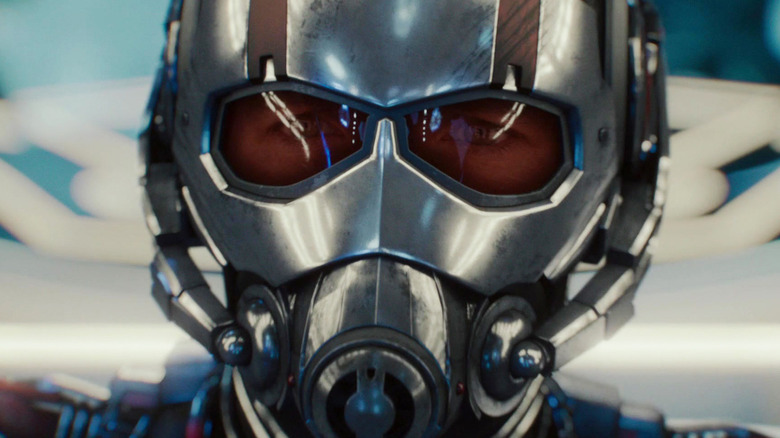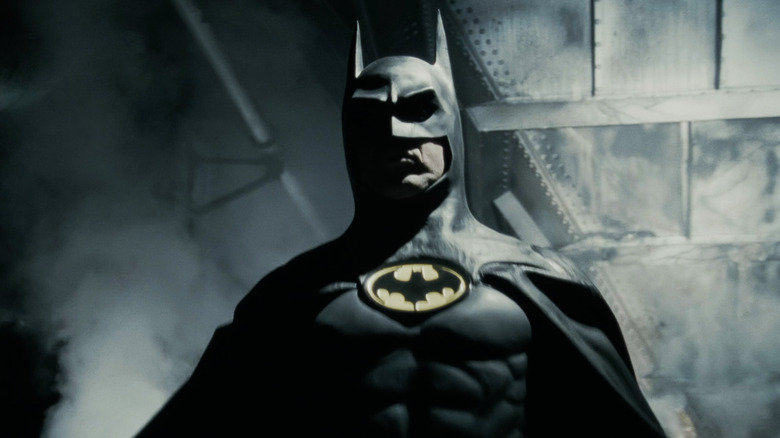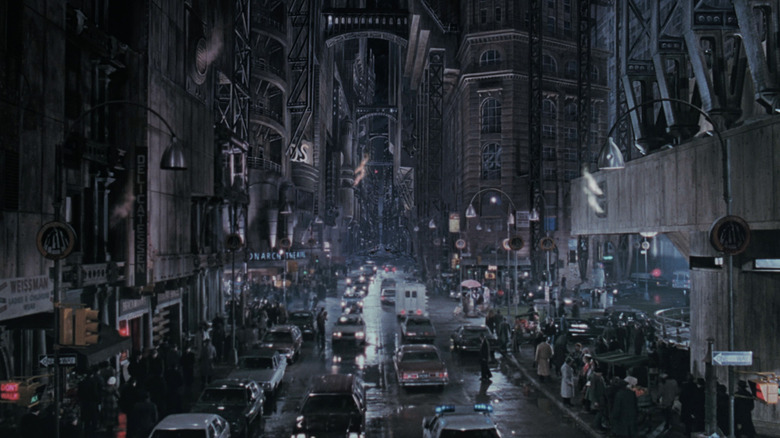Former Ant-Man Director Edgar Wright Subtly Called Out The Problem With Modern Comic Book Movies
Edgar Wright is far from the first person to highlight the problems with modern comic book movies, but he might have just nailed the central issue more succinctly than anyone in recent years. During an interview to promote his "The Running Man" remake, which has sadly stumbled thus far, the director recalled Tim Burton's 1989 triumph "Batman" as being the perfect example of how it's possible to smuggle a true artistic vision into a mainstream blockbuster. Sadly, such a thing has become a lost art in 2025.
A decade later, Wright's "Ant-Man" remains Marvel's greatest missed opportunity. The filmmaker famously lobbied for the film to be made, developing the project since 2006 and producing proof-of-concept footage for his vision that was shown at the 2012 San Diego Comic-Con. Then, he walked away. In the years since, we've heard much about the "creative differences" between him and Marvel Studios, which essentially boils down to the fact that the director wanted to make his movie, and Marvel wanted to make another theme park ride.
In an interview with Josh Horowitz, Wright revisited the whole debacle and said that the reason he wanted to make "Ant-Man" in the first place was because he was "inspired by the people who had got to do the first of something and kind of set the pace," pointing to "Batman" as an example. "That movie when that came out, it was both, like, the biggest movie of the year by far and also so idiosyncratic and specific to Tim Burton," he added. "And incredibly quirky for a big studio movie." Forget superhero fatigue and market saturation and middling streaming shows — Wright's point is the most important aspect of the whole superhero movie debate, and it needs to be talked about more.
Edgar Wright nailed the problem with comic book movies
Since departing "Ant-Man," Edgar Wright has spoken about Marvel Studio's notorious house style encroaching on his original vision for the film, which, in true Wright style, was shaping up to be an idiosyncratic stylized blockbuster that showcased his usual diverse array of cinematic inspirations. Several other filmmakers have managed to put their stamp on Marvel Cinematic Universe films, most notably James Gunn with his "Guardians of the Galaxy" trilogy (though even Gunn fell afoul of Marvel's shadowy creative committee). But such a thing is rare amid the Marvel machine, and Wright clearly struggled to make the film he wanted to make.
It's a problem that has plagued Marvel Studios for some time, and lately, it's become an excruciating issue for its beleaguered shared universe. The MCU's current downfall is well-documented, as the once mighty saga has faced a whirlwind of challenges that are equally well-documented. As such, piling on at this stage seems redundant, but there is one important aspect of the comic book movie debate, in general, that has wider implications for modern moviemaking — and Wright just nailed it.
The director went on to point to Sam Raimi's "Spider-Man" films and Christopher Nolan's Dark Knight trilogy as other examples of directors realizing a vision via superhero movies. But it's his reference to Tim Burton's "Batman" that illustrates the point best, simply because that 1989 blockbuster and its 1992 follow-up, "Batman Returns," are so distinctive in their stylistic choices that it's honestly a miracle they ever got made on the scale that they did.
Comic book movies are more important than we think
As someone who grew up on "Batman" and "Batman Returns," I not only understand what Edgar Wright is getting at, I can feel it. As a kid, I fell in love with Anton Furst and Bo Welch's industrial expressionist nightmare production design and Tim Burton's alluringly dark vision, but at the time, I thought I just loved Batman.
Michael Keaton's Batman was my hero and very much still is today. As I've grown older, however, I've realized that I didn't just love Batman, I loved how Tim Burton and his visionary team were teaching me something about my own sense of aesthetics and artistic sensibilities. The elegant yet gritty environs of Furst and Welch's Gotham remain so engrained in my mind that I'm pretty sure if I ever underwent an MRI, it would return grainy images of the Flugelheim museum and Gotham town square at Christmas. I'm forever grateful to those movies for sneaking such powerfully evocative images into my young cortex and surreptitiously taking me on a tour of 20th century artistic styles. It taught me the power of creative expression and how it can ignite imagination, all the while giving me a place in my own mind that I can forever feel comfortable.
Two comic book movies did that. That's the power of these films. You take away the underlying artistic vision, and you risk robbing kids of the chance to not only become transported by cinema at a young age but to better understand themselves. That isn't just something Marvel should be thinking about, it goes for blockbuster moviemaking in general. These studios have the collective imagination of kids everywhere in their hands. They should let Edgar Wright make a weird "Ant-Man" movie.


